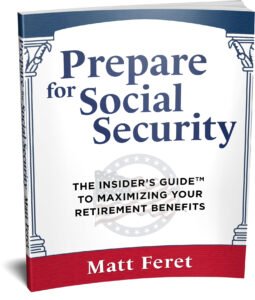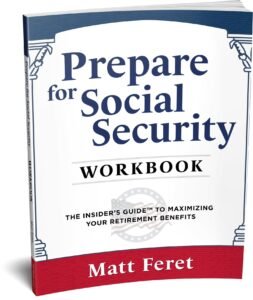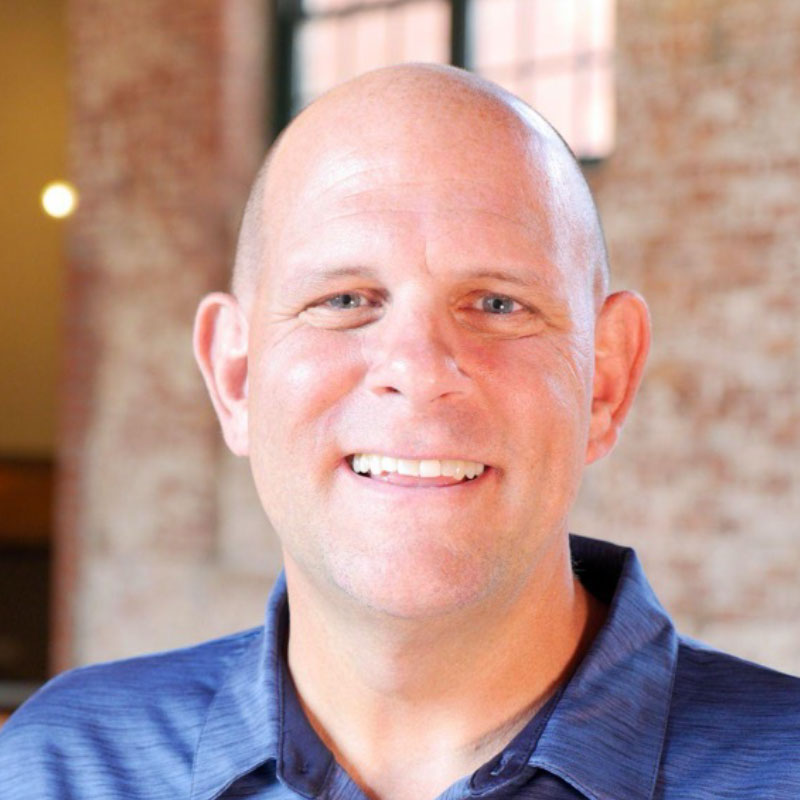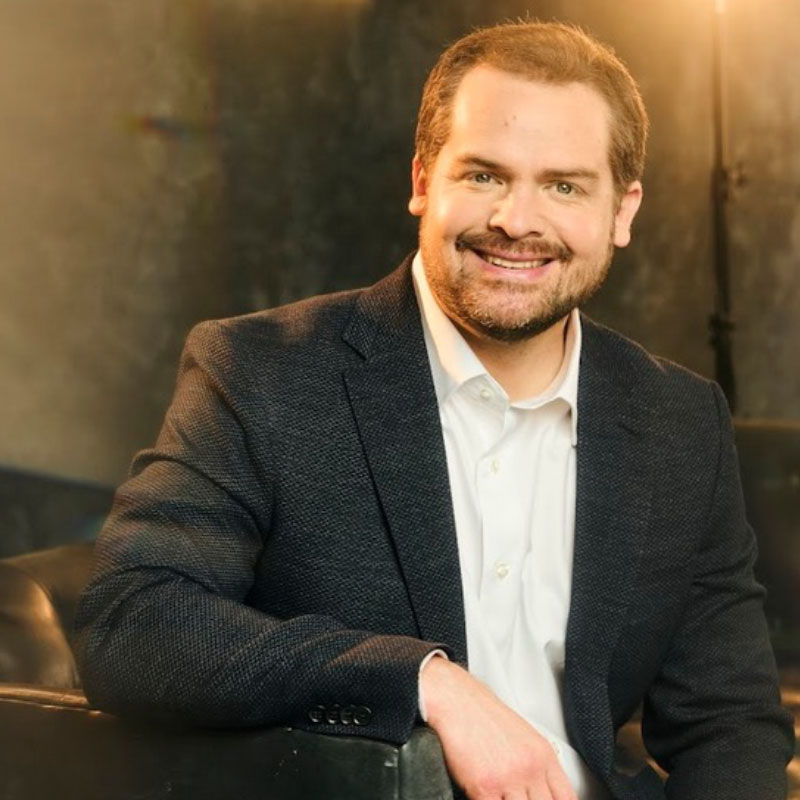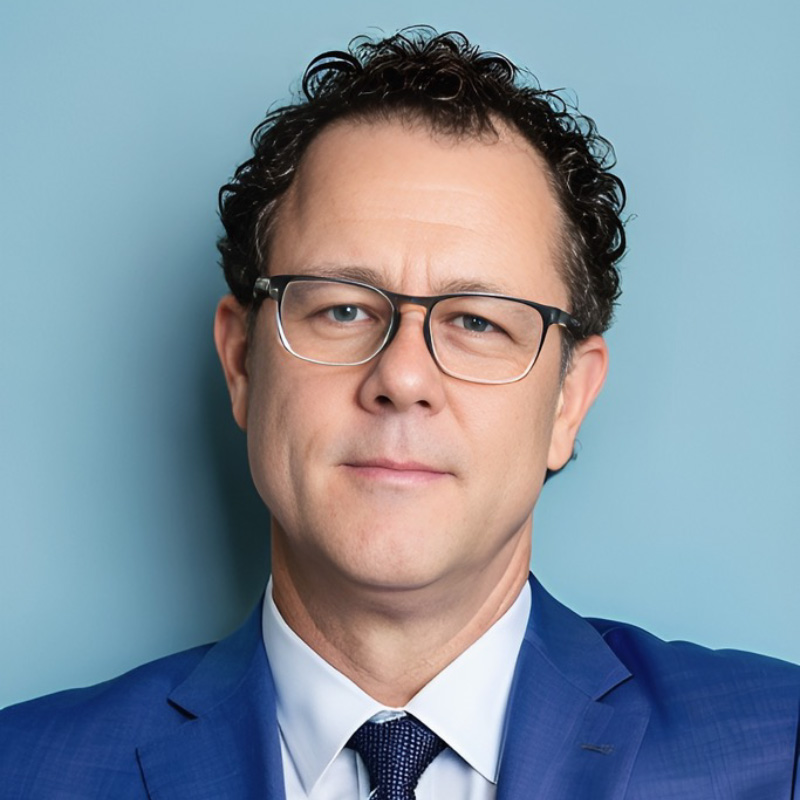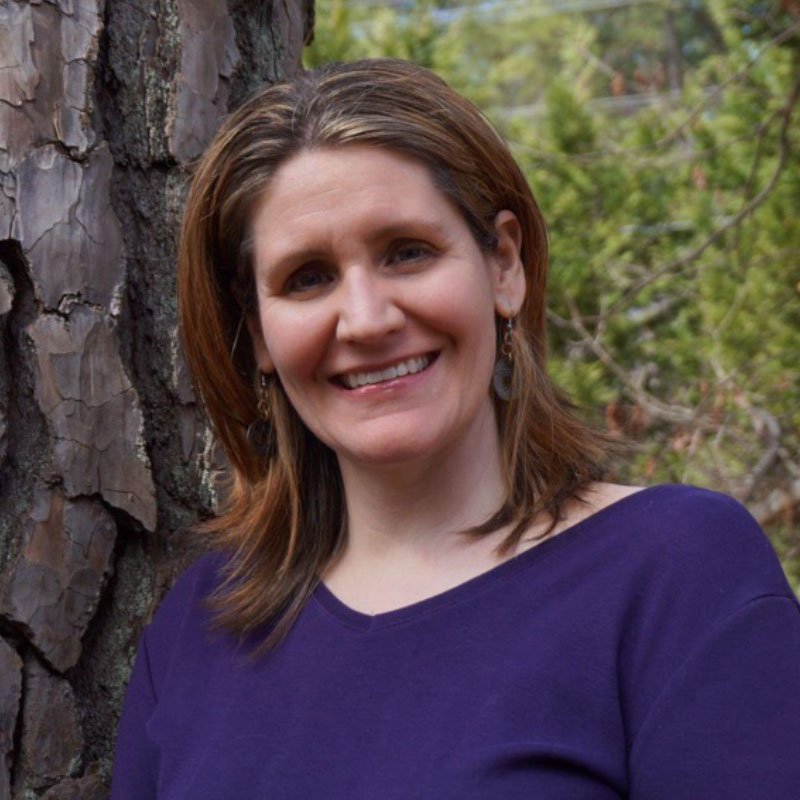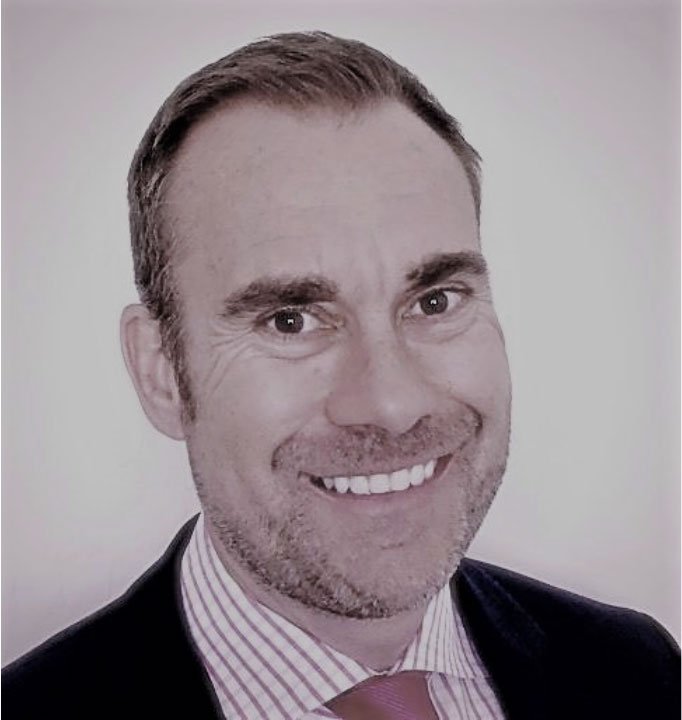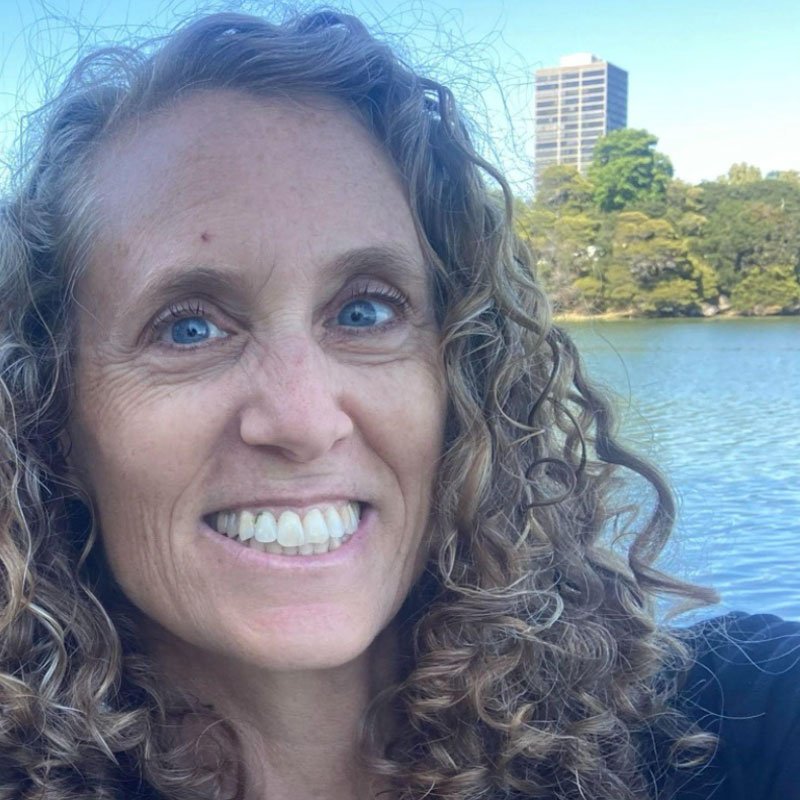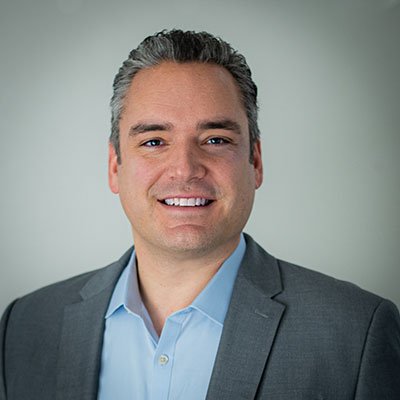#091
Share This:

For most retirees, the house they live in is also their biggest untapped asset. Home equity often sits quietly on paper, doing nothing while retirement savings shrink and costs rise. Yet that same equity can be converted into income and peace of mind — WITHOUT selling the home.
In this episode, I sit down with retirement expert Matt Helton to unpack how home equity could be the key to a better retirement. Matt has helped countless retirees turn their homes into reliable, flexible financial tools — not through risky loans or sales, but through smart planning and modern FHA-backed programs designed to protect homeowners. He explains how these options work, the most common mistakes retirees make, and why fear and misinformation still keep so many people from taking advantage of what’s right in front of them. I learned a lot in this interview, and I think you will too!
Listen to the episode on Apple Podcasts, Spotify, Deezer, Podcast Addict, Stitcher, Google Podcasts, Amazon Music, Alexa Flash Briefing, iHeart, Acast or on your favorite podcast platform. You can watch the interview on YouTube here.
Brought to you by Prepare for Medicare – The Insider’s Guide book series. Sign up for the Prepare for Medicare Newsletter, an exclusive subscription-only newsletter that delivers the inside scoop to help you stay up-to-date with your Medicare insurance coverage, highlight Medicare news you can use, and reminders for important dates throughout the year. When you sign up, you’ll immediately gain access to seven FREE Medicare checklists.
Quotes:
“We have an epidemic where people are slipping, falling, getting dementia, all kinds of stuff. And let's just say that you end up in the hospital, because you're the one that pays the bills, right? So they say, oh yeah, I take care of my own bills. So you end up in the hospital for three months. You wake up in 90 or 120 days, and you hadn't made a single payment. And you haven't been able to tell anybody because you were out of it. What do you think about the lender, your favorite bank, what do you think may have happened or done to your house in the last 90 or 120 days?”
Matt Helton: “This is literally a mortgage on your home like everyone's had their whole life. Just a regular mortgage so the client still owns their house. They can still sell their house. They can still pass it on to their kids. There's no difference. The only real difference is instead of having to make a payment they have an optional payment, but that's the biggest misconception. They think that the bank is like buying their house out. No different. All the equity is still there. So a lot of people, what they'll do is because of that, they'll get some equity now because we can only lend low percentages. They may live in their home for 10 years. They'll still have equity. And then they sell their home and use the other part of the equity to move into an assisted living. So it's kind of a strategy. It buys some time because if you have that money, you can have in-home care come and help you.”
#091
Selected Link from the Episode:
Host’s Links:
All Things Medicare: prepareformedicare.com
Decoding Social Security: prepareforsocialsecurity.com
My Written Works on Amazon: www.amazon.com/stores/Matt-Feret/author/B09FM3L4WW
The Matt Feret Show YouTube: www.youtube.com/@themattferetshow
Network with me on LinkedIn: http://www.linkedin.com/in/mattferet
Follow me on X: twitter.com/feret_matt
See behind the scenes on Instagram: www.instagram.com/matt_feret/
Join our community on Facebook: www.facebook.com/themattferetshow/
Follow me on Instagram:Matt Feret (@matt_feret) • Instagram photos and videos
Guest Links:
Podcast youtube: https://www.youtube.com/@servingseniorspodcast
Full Show Transcript:
Matt Feret (02:26)
All right, today on the show, I've got somebody who spends a lot of his time helping people get the most out of retirement, not just Medicare, Social Security or 401k but with one of the biggest assets most Americans have in their homes. This year, the Federal Reserve reported US home equity had reached a record high of Are you ready for this $35.8 trillion dollars that's that's trillion with a T
The average coming in at just over $300,000 per homeowner. My guest is Matt Helton. He's passionate about helping people create financially stable retirements, but he specializes in showing them how home equity can be used very strategically to improve retirement security. He also hosts the Serving Seniors podcast on YouTube where he shares ideas, resources, and conversations focused on making
life in retirement is better. So in this episode, we're going to talk about how home equity fits into retirement planning, the myths around reverse mortgages, what families and caregivers should know before making housing decisions later in life, and some of the biggest mistakes he's ever seen people make. So with that, Matt, welcome to the show.
Matt Helton (03:46)
Thank you for having me. Thank you for that awesome introduction. I don't even know who you were talking about there.
Matt Feret (03:50)
And nice first name by the
Matt Helton (03:54)
Yeah, thank you. And I'm assuming you know what it means?
Matt Feret (03:57)
What, Matt? ⁓ I don't. You're gonna have to tell me.
Matt Helton (03:59)
Yes.
Okay, well I this could be an urban legend it's what my mom told me when I'd fall down skin my knees said it means gift from God so I think she would usually say that when I was being the demon from you know where I guess she'd call me gift from God but I'll get back to you to see if that's really true or not
Matt Feret (04:11)
Really?
I think you're...
Yeah, do that. I don't think my mom ever once told me or definitely didn't think growing up that I was a gift from God. But now I've got a little bit of a little bit of ammo at Thanksgiving. Thanks. So tell everybody what you do, how long you've been doing it and how you help people.
Matt Helton (04:25)
Hahaha
Yeah, yeah, thanks again. So my name is Matt. We actually ⁓ live in the middle Tennessee area. And what we do is we actually show folks from early retirement on how they can strategically use some of their home equity to, say, not just survive, not just get by, but thrive in retirement. So we show them how to strategically, ethically, and efficiently use their home equity to have better retirements. ⁓ you probably see this all the time. We'll see folks that have, you know, 200, 300, 400, $5 million dollar net worths then we'll talk to them and say, yeah, we're just struggling. I'm like, well, what are you talking about? You got hundreds of thousands of dollars on your balance sheet and it's, no, what do you mean? And that they won't even get it. And then come to find out that it's buried in their backyard.
⁓ illiquid in the form called home equity, but it really just means a large number that you can't do anything with. ⁓ So we just show them how they can use that in an ethical and efficient manner and a safely manner as well.
Matt Feret (05:36)
What first got you into this?
Matt Helton (05:39)
Yeah, so ⁓ I started helping people buy homes in ⁓ fall of 2006. Coming up on 20 years and it was it was fantastic to help people actually get the keys to a home and help them to, you know, build the future, etc. And then we just started to see over time there was way more to ⁓ utilizing your home and utilizing housing wealth than just getting a home. And so once you get it, what do you do with it?
You work your whole life to try to pay it off or build equity and then there's all these folks that are just being scared into where they don't think it's ⁓ something they can use. So we'd just see people all the time that would have these large amounts of equity and then they wouldn't be having the type of retirement. They worked for 40 years to try to figure out, maybe could we go out to eat twice this month or maybe just once. It just didn't.
It just didn't make sense, right? ⁓ So we just figured out there's gotta be a better way to retire and made it our mission to teach people that there is a better way and a way to safely do it as well.
Matt Feret (06:47)
And it sounds like ⁓ you're saying what I think a lot of people feel, that they don't really, not everybody thinks about their home as part of their retirement plan. And I've got to guess it's because they're proud that they've paid it off and they don't want a monthly payment because retirement is largely about cashflow. And so they think, well, if I...
Matt Helton (07:02)
Yeah.
Matt Feret (07:10)
If I sell it, well then I gotta find something else and boy have prices really gone up or if I tap into it, well then I'm gonna have to start paying a monthly mortgage again and I just spent 15 or 30 years paying that dang thing off and now it's gonna be back on my brain that every month I gotta come up with this payment and what if something happens? why, with all that kind of background and I'm sure you've heard a million more stories, why should ⁓ retirees, early retirees or anybody, I guess,
Matt Helton (07:13)
Yep.
Matt Feret (07:40)
think about their house as part of their retirement plan.
Matt Helton (07:43)
Sure, no that's a good question. I always give, I kind of give this story to people a lot of times where, know, Matt have you ever met someone and you you're having a side conversation and you're talking about a couple down the street and the couple had been retired for a few years and they're traveling, they're doing things and they kind of look around to see if anybody's listening. You wouldn't believe about John and Sally, what do you mean? What's going on?
They saved in their 401k for 40 or 50 years and you wouldn't believe what they're doing now, Matt. Like, what do you mean? What are they doing? They're pulling money out of that 401k every month and going on trips and they're even spoiling their grandkids with their money. Can you believe they would do such a thing? Right? Now, have you ever heard a crazy story like that? Has anyone ever even, no one would ever say that, right? Because that's why they saved.
Matt Feret (08:38)
Right,
yeah, that's what you're supposed to do, yeah.
Matt Helton (08:39)
All those years, right? They saved, they put it all together, now they're enjoying it. Now, do you think someone may worry if they're thinking about tapping into their home equity, they're worried that someone may go, oh my gosh, I can't believe it. I just can't believe they're pulling from their home equity, right? Whether they would say that or not, people almost feel like there's a scarlet letter when it comes to touching equity in their home. So I just let people know, you know, you're...
401k Maybe never happened, right? You know it I kind of equate this I call these second chances and they just say well It's the second chance at the 401k that you were going to start every month, but never got around to it It's the second chance at that IRA that you were going to put away But you never did and it's a second chance at that long-term care policy that you were always going to start But it was always too expensive and you were going to start it next year
Right? So maybe you never got around to it, but you know what you did do? You bought a house and instead of paying a premium, you may have made a payment instead of the stock market going up. The real estate market appreciated, you know, you've got a 401k or you've got a long-term care policy just has a different name. And just so you know, there's no Scarlet letter with using some of this investment. is just like a 401k. It's just like a long-term care policy. You just happen to live there because, by the way,
If you use some of it, it's the same house. You still live there. You still own it. And also too, if anything happens to you, you can still give your house to your kids. I mean, it's no different. It'd be just like if you use half of your 401k and you pass away, the kids get the other half. If you use half of your equity to live off of, you pass away, the kids still get the rest of the equity. It's literally no different, but it just needs to be educated. And that's what our mission is, is just to teach people how it works.
Matt Feret (10:38)
If you let me put it in a different way and disagree with me if it's wrong, your 401k is an asset, right? So if it has a positive balance, that's an asset. Your house and the equity in it is an asset. It's just to your point, maybe there's a scarlet letter around utilizing that asset because it's somehow, know, what if the market collapses like in 08 and 09 or what if...
Matt Helton (11:05)
Yep.
Matt Feret (11:08)
I guess a bunch of the what ifs. are we, you know, my amateurish knowledge about this, it comes up with two phrases. One is HELOC ⁓ and the other is reverse mortgage. So what strategies do you, or are there more, what strategies do you deploy or talk about when you're talking about this topic?
Matt Helton (11:29)
Sure. Yeah, there's really three. There would be the HELOC. There would be the ⁓ traditional forward mortgage, which would be the 30-year, 15-year fixed. And then the final would be the reverse mortgage piece, which 90 % of those are actually called, their official name now is called HECM, which is Home Equity Conversion Mortgage.
which basically is what it says, you convert some of your home equity to cash. And those are FHA mortgages, just like I'm sure most of your clients or listeners have either had an FHA or used an FHA to get started. ⁓ Just most people don't know that. You know, 90 plus percent of all reverse mortgages now are the consumer protected version, which is an FHA mortgage as well. So we, all three of those options are available. And then what we do is just go through the pros and cons, you know, ⁓ for example, the, HELOC, the advantage of that would be, ⁓ usually it's cheaper as far as closing costs. It's a little bit more flexible than a regular mortgage. So you have some, have some options there, ⁓ and you can get, you know,
some or all of your equity and then be able to pay it off like an accordion. It expands and contracts, if you need it. So those work good. The cons of the HELOC is unfortunately most banks either at year 10 or 15, either number one, if you borrow a hundred grand, they want all their money back. So you, you know, you pay all this interest. I worked at a bank in, in, uh, 2008 and, um, it was daily where someone would come in and say, I don't understand. My payment was $165 and 12 cents last month.
This says I owe $79,812.19. I don't get it. And they missed the letter that says, oh, by the way, your note's due and payable next month, right? So, exactly. And the other part with the HELOC is banks. You don't know it because it's in the fine print. They can actually change their mind. So the bank could give you $100,000 HELOC and if the market tanks, they can say, I know, Matt, you were thinking you had $100,000 limit, but you never got around to using it.
Matt Feret (13:16)
Right, right. That's a 10 year normal thing, right? ⁓ Yep.
Matt Helton (13:34)
So now we've closed it and you don't have any limit at all. That money is not available anymore. So that can happen on HELOC. So those are some challenges. So the payment can jump up or the total amount could be due and it could be called. The regular mortgage, the benefit of those is you know what the payment is every month. It's static and steady. But the negative is you have a payment every month, right? So if you want to borrow a hundred grand in today's world, you're looking at $800 to $1,000 a month. And it's much harder to qualify because of the payment and if you're on a fixed income Who knows with your other bills if you'll even qualify with the average Social Security in America being? $1,976 recently you're not going to qualify if it's just one
Matt Feret (14:18)
You know what
I didn't think about that on regular mortgages. Like if you paid your mortgage off and then want to go get another, what are the cash out refi mortgages, you know, the loan to value is going to be what 70 75%. But here's the thing. And maybe maybe I'm wrong. Tell me if I am. They like W two income, they like bi weekly W two income to underwrite those loans. And when you don't have it, even if you have assets, not a lot of banks like that. Is that true?
Matt Helton (14:26)
Yep.
Yep.
Sure.
Exactly. Yeah. So let's say that if there is two people with the average social security of 1,976, you're making about four grand a month. So you could really only get somewhere approved for around a $1,500 a month mortgage. Give or take would probably be the top amount if you didn't have hardly any other bills. So by the time you add in your, if you want 100, 150,000, you add in taxes, insurance and HOA, you're going to be pretty, and then, oh, unfortunately, right, ⁓ the guys always die before the women. So the wife now she really needs the money because the husband passed away and darn, she's only making two or 3000 a month, she won't qualify. So that makes it hard to get a traditional loan as well. And then so that's the pros and cons of the traditional and then the reverse mortgage, you know, the the biggest con on the reverse mortgage would be if you don't make a payment the interest is added on, the balance does increase. So you're deferring the interest. And that's the reason why, Matt, we only are allowed to give low percentages. So it's a sliding scale based off your age. So if you keep most states as 62, there's some options as low as 55. But you can only borrow around 30 % of the value of your home if you're 62.
And if we were working on one now where the lady's in her 90s and she can borrow about 60 % of the value of the home. ⁓ And the not so... Yep. So I always say...
Matt Feret (16:15)
way and explain that I didn't know that explain that to me again. So did I hear that right? The the younger you are, the less they'll loan you but the older you are, the more they'll you'll right. Right. That's what I was thinking.
Matt Helton (16:22)
Yes sir.
It's almost like the opposite of life insurance, right? When you're younger, you can get more and it's cheaper. That's because it's going to be longer before you die. So you're going to pay more in, right? This is the opposite. I guess the not so nice way of saying it is the older you are, the closer you are to death and meaning that they don't care if you add, you won't have as much time to add interest onto the balance of the loan. Like my 90 year old client, she's probably not going to live too much longer.
Matt Feret (16:50)
Right, the older you are, the less risk you represent to the lender for being upside down. I've thinking about it that way. That makes sense.
Matt Helton (16:57)
Being upside down. Yep. You're exactly right. So that's where it kicks in. And so the the the disadvantages right is you are quote unquote losing equity. So some be like, well, that sounds risky. I would never do that. Why would I? Well, the idea is if you have so much equity, like if you borrow two hundred thousand on a six hundred thousand dollar home, why in the world with a four hundred thousand equity would you slave or forgo other fun or forgo worries about paying bills. When you have 400,000 equity, the way I like to describe it is your actual house is paying for you to stay in your house, right? Your equity every month is almost making your payments for you. it's basically take, you've, your whole life you've worked to pay the house. Now it's flipped where the house actually works for you and makes the payments on your behalf.
Matt Feret (17:53)
All right, so let's use that scenario and just like, let's do a what if. All right. So I think you just said like a $600,000 house and you pull $200,000 of equity out of it and you've got $400,000 left. You know, we've all lived through 809 and 10, where housing prices went whap and whack people. So what happens if that happens? Like what's let's say that $600,000 house goes to $300,000 and you've got 200,000 out on it all of a sudden you're starting to get a little shaky.
Matt Helton (18:07)
Yep.
Yep.
Yep.
Matt Feret (18:23)
In that, you know, doomsday scenario that's, you know, what was it, 15, 16, 17 years ago, wasn't that long in the rear view mirror for a lot of us. What happens then?
Matt Helton (18:30)
Yep.
Yeah, great question. So the practical answer would be as part of the reason why these have become so much safer as FHA loans is FHA actually insures the mortgage. So and they're non recourse loans. So what that means is the only thing that could be used to satisfy the debt is the home. So and that's from the client and from the estate. So even more extreme example than what you gave. Let's say that you live for a long time, you borrow 200, you never make a payment. The balance goes up to 400. The market crashes, the home's only worth 200. So you're actually upside down 200,000. You pass away, the kids get an appraisal on the home, only worth two, they owe four. They say, you go, Mr. Mrs. Banker. Your house, enjoy it. My mom and dad got to, they lived the best life. They used all the money out of it. They got to have fun with it and here it is back because there's no money to come after because the insurance actually pays that off. So it's actually federally insured for that. Now what more likely happens is they borrow 200. They never make a payment. They live for a long time. They owe 250 when they pass away, it's gone up to 600, 625, 630. The family sells it at the market, pays off the loan just like a regular scenario and the family still gets to split all the equity as well. You know, that's the more likely scenario, but you know, Matt, some people will say that, I just don't get it. This sounds kind of risky. know, what's the catch, right? They'll ask me things like that and then nine times out of 10,
most of the people will have a regular mortgage on their home or they've either had a mortgage, you know, or maybe they're looking into a HELOC, you know, I just don't feel comfortable not making payments. And if that's the case, they can make payments. That's another change on the new reverse mortgages is you get a statement in the mail every month. It'll tell you how much the interest was. You could actually write a check for just the interest. So you could keep the balance the same, like an interest only mortgage. So somebody could just pay the interest to keep the balance the same. So that's one option.
They could pay more than that to pay the balance down, but most people don't pay anything, right? Because if you get a statement in the mail that says you owe zero, you're probably going to pay zero. That's what most people do, right? But let's just say that comparing the two and why it seems less risky. So I usually ask people, say you go down to the bank, what's your favorite bank? They always tell me, if you go down there get a HELOC, let's say the payment is 800 bucks a month. And ⁓ unfortunately,
We have an epidemic where people are slipping, falling, getting dementia, all kinds of stuff. And let's just say that you end up in the hospital, because you're the one that pays the bills, right? So they say, oh yeah, I take care of my own bills. So you end up in the hospital for three months. You wake up in 90 or 120 days, and you hadn't made a single payment. And you haven't been able to tell anybody because you were out of it.
What do you think the lender, your favorite bank, what do you think they may have happened or done to your house in the last 90 or 120 days? Oh gosh, I don't know. That doesn't sound very good. Probably at least a sign in my yard or lots of letters or something. I was like, exactly. So let's say that you didn't do the HELOC. You did one of these loans, the FHA's new version of a reverse mortgage, the HECM. And then you disappeared for three months, something bad happened. And then all of sudden you get better and you come home. Any idea what you think the lender would have said in that 90 or 120 days. they all, nine times out of 10, they all say, what? I thought that's what we were talking about. I don't have to make payments, right? I was like, exactly. So I guess my question to you is what sounds riskier, missing three or four payments and have a sign in the yard, not knowing where you're going to live or missing three or four payments and that being part of the plan and what you signed up.
They usually get it at that point.
Matt Feret (22:35)
A great example. One of you used a phrase here that not everybody knows. And you said it a couple of minutes ago, but I want to revisit it. You said non recourse. I don't know that a lot of people know what recourse and non recourse means. Can you clarify that for folks?
Matt Helton (22:45)
Yes, sir.
Yeah, yeah, that's perfect. Yeah, so all that means is is that it's not it's it's almost like a commercial loan like in the commercial world a lot of times They'll just go have be able to go after your business to satisfy any business loans and this works the same way But it's non recourse with your personal finances personal credit. They only can go after the house to settle the debt So they can't they can't go after your, let's say you have a million dollars in your portfolio, you pass away, you give a million dollars to the kids, you give the house to the kids, but unfortunately the market tanked on the real estate and you owe $50,000 more than the home is worth. They can't come after you and ask you or kids to pull some of the million dollars out of the million to pay off the 50,000 though. They just literally the insurance covers it and says, Hey, you actually won. like, what do you mean? Well, instead of you losing 50,000 in equity, you actually used more equity than is even there. So they just can't come after you personally or come after your family to satisfy the debt. It's only the house.
Matt Feret (24:03)
So a lot of people hear the phrase reverse mortgage.
And I know they've made a lot of rule changes in the last few years and you alluded to those. know, and they see Tom Selleck on TV. ⁓ Tom's a nice, trustworthy guy, right? Blue Bloods and Magnum P.I. Yep, ⁓ Magnum P.I. back in the day. Best show ever made. ⁓ But people immediately go bad idea. And that probably, rightly or wrongly, there are phrases in people's brains. I can think of one, HMO. Well, HMO in the 80s and even in the 90s,
Matt Helton (24:20)
Yep, blue bloods, baby.
Yep.
Matt Feret (24:39)
a connotation today. They don't necessarily have the same but the acronym stuck, the phrase sticks. So a lot of people here reverse mortgage and automatically think it's a bad idea. So what are the biggest myths you run into and what's the truth behind them?
Matt Helton (24:44)
Yep.
Yeah, yeah, great question. So there's a handful of them. ⁓ Number one, people think that you don't own your home anymore. So they, I mean, I'll go through a whole packet of information, I'll explain this part, and then people still ask, so you're telling me that you guys own my home and when I die you just take the house? It's like, well, we just went over that on page seven, article 12, it just said that this is a regular loan.
I just want to make sure because that's what I thought was right. This is literally a mortgage on your home like everyone's had their whole life. Just a regular mortgage so the client still owns their house. They can still sell their house. They can still pass it on to their kids. There's no difference. The only real difference is instead of having to make a payment they have an optional payment, but that's the biggest misconception. They think that the bank is like buying their house out. No different. All the equity is still there. So a lot of people, what they'll do is because of that, they'll get some equity now because we can only lend low percentages. They may live in their home for 10 years. They'll still have equity. And then they sell their home and use the other part of the equity to move into an assisted living. So it's kind of a strategy. It buys some time because if you have that money, you can have in-home care come and help you. Cause what usually happens is you slip and fall and something happens and you have to go, this will give someone the money where they can have people come and help and mow the grass and take care of the roof and those type of things. But that's one misconception. Other misconception we get quite a bit is people have the vibe that this is only for people without any money. We actually have, we had a client, he had three and a half million dollars in his portfolio and he noticed that he could actually, he knew he could make more with his money then he could by borrowing this big amount or paying cash for an $800,000 home. So we did a reverse mortgage for purchase where he put half down. We did a loan for the other half. And the other thing he was worried about was he and his significant other got together later in life. She wasn't gonna inherit the three and a half million. And he knew if he left her with a three or $4,000 mortgage payment, because he was a little bit older when he passed away that she would be in trouble because she barely made much in social security.
So, he knew she could handle a zero mortgage payment. So a lot of people that are well off, they understand the power of leverage and using their money for other things. So we have a lot of high net worth clients in certain States too. Um, there's actually options if you're 55 and older, where you can do, um, you know, four or $5 million homes with large reverse mortgages and you know, someone could do one to million dollar reverse mortgage, use that money for other purposes at 55, whether it's use the money for their business, use the money for cash flow. We do see it quite a bit where someone may have a change of life, you know, maybe a divorce situation, but they want to, you know, they're going separate ways, but one of the spouses want to keep the house, but they can't keep the house with a million dollar mortgage and a $10,000 payment, but they can if the payment is zero, but they may have a lot of equity. So we see a lot of those as well. So it's not just for people without money.
The other thing that we see quite a bit is people think they're just for ⁓ refinances. The problem a lot is, you know, like 70, 80 % of all seniors want to age in place. ⁓ But about half of those people want to age in place in a home that they own somewhere else, preferably closer to grandkids. So we have a reverse mortgage for purchase. So they're able to sell their home, make a stack of money, put a large amount of money down on the next house, but keep some of the money they made back so they have liquidity. So we, while they're under contract, underwrite the reverse mortgage instead of them having a FHA, VA, conventional, jumbo loan, whatever it is, at closing, we close a reverse mortgage under the contract date. So they're able to move, you know, maybe they move from a, you know, a high priced area to a little bit cheaper spot. They could put everything down and pay cash but they went, but they go from not having a ton of cash to for like an hour having 500,000 in their bank account, right? The next thing you know, they put the 500,000 down and they're like, well, I'm glad we're by the grandkids. We were rich there for a few minutes and now it's all, it's all down. So then they could put, maybe they put 300 down. They keep 200 back. Next thing you know, they have the same house. They're by the grandkids. They have no monthly payment, just like it's paid off. There's no payment required and they have 200,000.
Matt Feret (29:19)
Yeah.
Matt Helton (29:42)
So ⁓ we see that quite a bit where they think it's only for refinances, but we do a lot of purchases as well. I'd say those are the biggest things.
Matt Feret (29:51)
I had no idea that that type of optionality existed like that. That's really interesting, especially in those scenarios you described where, you know, it can pay for health care, can reduce stress, it can get you in moving to grandkids without that whole, it's funny. Hey, we were rich for five minutes. That was, that's funny, because you're right. I sold, I got my equity out, and then I bought something else and there it all went. It was, ⁓ I think you said I was rich for five minutes. It's funny, but really true. On the flip side,
Matt Helton (30:20)
Yep.
Matt Feret (30:21)
There are a lot of advantages to that kind of flexibility and what you talked about. What's the situation on the flip side where somebody waited too long or made the wrong decision with their home and it caused problems later? Do you run into that?
Matt Helton (30:34)
I'd say the kind of the thing about waiting too long is ⁓ we see a lot where, and it's not impossible, it just takes a little while, where people wait too long to get their financial affairs in order. And then they'll have one of the two parties will have a dementia diagnosis and some financing options will be okay if you do a power of attorney post diagnosis. But if you really boil it down and think about it, you have someone that has been ruled to not have their mental faculties, their mental capabilities. And then they signed a document that said, I want to give my rights to sign paperwork to someone else, which if you kind of go through chronological order would probably say that they had no idea what they were signing. So
A lot of times on a HELOC that may work at just a small bank doing a HELOC, they'll take that. But as far as a reverse mortgage, for example, since it's government regulated, they will look and see ⁓ your POA would have to be prior to the dementia diagnosis. So that way you knew, you you could tell they knew what they're doing. So not that it's impossible. And then if that doesn't work, it's, ⁓ then all they do is go through, have to go through the courts. And they would do a conservatorship. So that could be, you have to hire an elder law attorney and then you have to get several doctor's letters. And then what you would do is you would take it to the judge and the judge would say, Hey, I reviewed everything. You're looking out for your family's best interest. I totally understand this. This makes sense. And they sign it over where, ⁓ cause usually the spouse is on title. So you can't refinance or you can't buy a home, normally without the other party signing. Especially on a refi. So that's when I see quite a bit is where a lot of, as you probably know, in your business, most people only do something when they have to. And sometimes when you have to do it, it's either one, under a lot of stress, number two, done too fast and incorrectly, or number three, not even possible, you know, at that point. So I'd say waiting too long to get their affairs in order is what we see quite a bit. ⁓ and then they'll call us and they may want some financing but they can't really pull it off because they've waited too long.
Matt Feret (32:56)
That makes sense.
That power of attorney thing is, I mean, the incidences of all the hundreds of forms of dementia is really something that hits the news cycles every once in a while, but not enough. And then, like you said, if you don't have your power of attorney or your affairs in order, you know, ⁓ spouses on the mortgage, both names, time to heck, sell, refi, reverse mortgage, that's gonna get sticky if you've got nothing in there, ⁓ if one of them's been diagnosed with a dementia. Really good, really good call out there. Let me get to another part of the family. A lot of adult children eventually get pulled into these conversations about parents' homes and finances and, you know.
Mom's got dementia, dad doesn't. They don't have long-term care insurance. We all know how expensive paying for it out of pocket is. And they're looking to downsize and it's all kinda coming together. They got equity in the home and they're gonna ask their kids, but obviously, sometimes again, with that amount of equity, they wanna leave the house as part of the kid's inheritance. They're not necessarily feeling real good about spending that money. They wanted to give the kids and the grandkids. So what should families know before making housing or financial decisions together.
Matt Helton (34:23)
Hmm good. Yeah, great question. You know, I've seen that quite a bit over the years where it's usually if there was one family member that hasn't done very well compared to the rest and they'd been banking on the equity where they'll come up with, know, maybe it's real, maybe it's not, but you do get a lot of interesting objections. No one ever says, hey, I want all of mom's equity, right? So there's other ways of saying that, like, I went on this website and they said what you do is a bad thing. And then the other kids are like, I think they really need to do it. And you got the one holdout and came up with all these crazy things. So we see that. I would say that you'll never going…you're never going to be able to fix everyone's heart and you never be able to make sure everyone's hearts are in the right spot. But the way that the way that that I kind of do that is that at least to come across to let them know that I'm given the family the same advice that I'm going to give my mom that I'm going to give my dad that I'm going to give my my grandparents, irregardless of whether they do the loan or not, you know, so just let them know that, hey, I'm
I'm going to lay out all the things I feel comfortable with or this isn't a good thing. I'm going to tell you and you can also tell me as well because I'm going to give you guys the same advice that I give my parents and by the way, know when I turn 62, I'm going to be first in line for my reverse mortgage. That's how much I believe in this, this product and program. ⁓ So just letting people know that hey you're looking out for their best interest. You know this one loan isn't going to affect whether we pay our bills or whether it's like it's not about that or anything. It's about how do we help your family member have a better retirement and if it's not me with this product let's find somebody else that can do it so usually if you can let people know when they feel genuine about that hopefully they come around and then they're
making their decision off of what's best for their mom, not what's best for them as well. So that's kind of the way I handle that. And hopefully, you know, they do feel that. And then whether they come around or not, at least we know we've done our best for them. The other part about that we see more now, Matt, than in the past is more and more kids are actually having to work, pay taxes, pull money out of their checking account and give it to mom and dad, just with everything being so expensive. So we've got more referrals lately from kids than we have lost transactions because kids are making a stink about it because...
Matt Feret (37:03)
Yep. Yep.
Matt Helton (37:16)
We've had several, ⁓ we had one for example, where a loan officer friend of mine called and said, hey, you got to talk to this guy, financial advisor, just called me because he he called one of his clients and he said, well, just want to check in with you because I know that you were investing a few thousand dollars a month. We noticed that that really backed off quite a bit last year. So what's going on? And he's like, well, having to give mom like two grand a month, that's how much dad was making. He passed away and mom doesn't have anything. And he said, he kind of dug in and was like, well, she didn't have anything. He's like, no, she doesn't have anything. And she's trying to keep up the house and pay for this and pay. He's like, well, you said house, tell me about the house. Well, yeah, she bought a house. ⁓ You know, it's out in the country but it's by a golf course she paid like 100 grand like 30 years ago and I don't know it's worth like four or five hundred thousand on it and but you know she owes like 20,000 and he was just kind of amazing so you're telling me she's got like four or five hundred thousand equity you said she didn't have anything oh well I mean that she doesn't have any money that's all she has so well have you ever thought about her using some of that and he was like man
No, not really. I don't know what she could do. So, well, let me make some calls. So he called a loan officer that didn't do what we do and connected with us. you know, 30 days later, she had no mortgage payment. His sister was paying for her taxes and insurance. So then our loan took up paying her taxes and insurance. And we gave her enough money to fix the roof because that was her concern. And we're giving her $2,000 a month that offsets the money that he was given, if that makes sense. So it's really just thinking through.
Like if you're a kid, you know, an adult kid with a parent that's 60s or 70s, it's just thinking through, yes, you may get a little less equity, but also if you're out there working and making things happen, think about if, you know, odds are mom and dad don't die the same day, it's going to change the financial situation. At some point the script flips and you're the one having to give mom or dad money. Do you really want to work, pay taxes, pull it out of your account? And on top of that, the mom wouldn't even watch his grandkids anymore, her grandkids anymore, because she couldn't even afford to take them to McDonald's. Right? So just like the confidence and just her life and all, like it wasn't what she envisioned when she thought about retirement, right? Was just trying to figure out how she could live off $1,500 a month.
Matt Feret (39:40)
Right, yeah, you can't, can't. And that changes the dynamic between, you know, parent and kid, ⁓ which is not what anybody wants, especially if I'm the parent, I don't want to have to, that's a weird, I don't want that the end of my life. Right? I mean, I don't want that dynamic to be weird where they're paying me because I need it at the end of my life if I don't have to.
Matt Helton (39:49)
Yep.
Nope.
Exactly, and you know, I don't think she's probably not gonna live 10-15 years, but even if she does there's still there's two kids She's still they're still gonna make like a hundred thousand apiece in equity when something happens to her Not that they need the money out there worried about it But there's still gonna be money there as well not as much but there's gonna be some money So those are the type of conversations we try to have with people as hey, I understand Matt You're getting less but have you ever thought about if things go don't go as planned with mom or dad?
Matt Feret (40:14)
Yeah.
Matt Helton (40:32)
How you could be left living ⁓ covering their bills while they're living. Have you ever thought about how we can look at this proactively to keep that from happening? Because if they don't use it, they don't have to pay for it either. We have a lot of people that'll do this proactively to get their access to the money, but then they don't have to use it all or they don't have to use any of it if they don't want to.
Matt Feret (40:54)
Well, let's go there. someone's five years from retirement, what should they be thinking about with their house right now?
Matt Helton (41:01)
Mm-hmm. Yep. what they're a couple things they could do ⁓ now if they're 62 in any state in the country ⁓ they'd have a couple options the neat thing about the the ⁓ HELOC option if you wanted to go that route as you could do a HELOC
have a zero balance on it, not know any interest, any bills, but have that availability there waiting for you. So that's one option. The other option you could do if you're 62 or older would be the HECOM FHA reverse mortgage. And the power of that is that if, for example, if I could give you a $200,000 zero balance line of credit with no money on it.
the amount you can borrow actually goes up every year. It's almost like you get a letter in the mail that says, congratulations, your credit limit has increased like a credit card. It automatically goes up so you don't have to refinance. So for example, most situations if you go by the rule of 72 in 10 years the amount you would have access to would double in this scenario So so in all reality you would have your 200,000 would be 300,000 probably in about five years So you could actually get it get it in place set it all up and then let it grow every year the limit and then be prepared so if you're in that range I would say that it would be worth at least seeing how would it look today and then we can project how would it look in five years and decide does it make sense to do something now or does it at least make sense to learn about it and then hold off and wait until you're retired because a lot of people once we run the numbers you know they're working to pay off the mortgage right well if I just work ten more years I'm having the mortgage paid off and then they make their last payment and they die the next day I mean I don't know how good a plan that is you know so
Matt Feret (42:59)
Yeah, well,
So what if somebody is already retired? How do they know if tapping into equity makes sense for them?
Matt Helton (43:05)
So all we have to do is figure out, we project what we think the value of the home is. They tell us how much they owe on the property, if any, and then their birthday. And we go ahead and assume that they've got okay credit. We don't even do a credit report at the end. With those three factors, the property value, the amount they owe and their age, we can actually give them a proposal on how it would look in their situation. And then if they let us know that they think they've probably got not so good credit, then we actually, they can still do the loan. We just have to roll back the amount we can give them because the loan has to pay their taxes and pay their insurance for them, which a lot of people want anyway. But if they have, if they have shaky credit, it has to be that way, but we're able to run those numbers without a credit check and just to give them some ideas and some, ⁓ some ways to see how it works. And then if they wanted to explore it more, then we get into credit. ⁓ it's all about education. There's actually, it's called counseling. So we actually have to send them a list of 10 third-party vendors that go through even on top of what we tell them go through all the pros and cons it would be like it would be like you know if you wanted to buy a car you had to go to you had to leave the car dealership and you had to go to an independent car educator for an hour and a half that teaches you all about the pros and cons of buying a car it's kind of what it is and then they get a certificate and come back to us.
Matt Feret (44:29)
Yeah.
Matt Helton (44:32)
So it's all about education. So my advice is for everyone 62 and older to learn about it. Sometimes they learn their way right into it, into cash flow and a great option. And sometimes they learn their way right out of it where it's not for them, but it doesn't cost anything just to kind of learn about it. There's no, at no point in the process do they have to finish the loan.
until they've completely done, completely signed and all. we tell people, at any point all the way through signing the paperwork at the end, if you ever feel uncomfortable, we'll cancel it immediately and no harm, no foul.
Matt Feret (45:10)
You know.
I want to take that and pivot just a smidge here into kind of the industry. So I talk a lot about this, you know, the old Pareto principle 80 20. And I always say it's really 90 10. He got it off by 10%. And I equate that, you know, in my background in history is that, 10 % of the, let's say, insurance agents out there are really the ones you want, you want the experts, right? And that doesn't mean the other 90 are no good people. That just means, you know, the people who are doing this full time have been doing it a long time, they know the ins and the outs, they are full-time insurance professionals, you can tell, and you can only tell by interviewing them. So I encourage a lot of people when people ask me who to go to for Medicare insurance, and other than my wife, I actually give a checklist of here's how to interview your insurance agent.
Matt Helton (46:01)
Yeah, that's great.
Matt Feret (46:02)
So what are the key questions someone should ask a professional in your line of business before making a housing or reverse mortgage decision?
Matt Helton (46:12)
Hmm.
Mm-hmm. Yeah. ⁓ well, I'd say one one main question would be, you know number one would be is this something you believe in and do you believe have you ever done it yourself or when you're Available to do it. Will you do it yourself? Because if if whoever you're working with I'll probably never need this or probably not or don't look you in the eye when they answer the question and they Yeah, I probably will or
They don't believe in what they're just doing. They're not really, they don't have a call in or mission. They don't believe in what they're doing. They just have a job. So that would be probably one, one question, which that's more of a gut feel, right? Than an exact, cause anybody can say anything, but not everyone qualifies for a reverse mortgage. But if they don't believe in enough to do it themselfs, it's probably not the right, the right person. You know, that would be, that'd be one thing. The second thing I would say would be, you know, well, well, tell me, tell me a situation where this isn't right for me.
And, you know, you, they should have some scenarios. They should have some examples. They should have some stories where they've, you know, referred people to other folks because if they're only worried about that closing in that commission, they're going to try to twist your arm and kind of talk, talk you into it. ⁓ And I'd say the, third, the third example, ⁓ maybe the third question that they may, you may want to ask is, you know, well, tell me a little bit about.
you know, how long you've been, ⁓ been at your current firm and why you work there because you know, there's a lot of transient type situations where people were jumping around and doing different things and not saying that it's not bad to move, move companies. The challenge is, that if you just moved to a new company, then you may not know the process or how they do it. And you may, you may be, you may be a train, a training dummy, if that makes sense and not sure that you want to be involved in a crash test, if that makes sense. not saying that it's bad to move firms. I've definitely done it in the past, but that would just be maybe a few questions that you could ask to kind of see where people are coming from.
Matt Feret (48:25)
And you've been doing it a long time. in the last 10 years, and you've been at it longer than that, what's changed the most in how people think about their homes and retirement over the last 10 years?
Matt Helton (48:39)
Mm-hmm
Yeah, I'd say the the biggest the biggest changes that kind of come across that I've that I've noticed is that the the home equity number has just gotten so large that You know people really can't ignore it anymore. You know I mean people were spending a couple hundred grand on a house and it being paid off and You know if you've got a million dollar portfolio, and then you've got two hundred thousand dollar in equity, kind of brush it off if that makes sense. But now, you know, the average house being four, five, six, eight million, depending on where you live, and if it's paid off, right, it's as much or more than your portfolio. So that would be one thing. It's just, you know, almost too large to ignore at this point. So people are starting to really inquire. Also, on top of that, the only reason why the home is so expensive is because of inflation.
And inflation is eaten away on the other money that you have, but it's added to the value of your home, right? So the only way to combat inflation is to use an inflated asset, which would be your stocks, your bonds, your mutual funds, or your house. So to kind of come alongside that. that would be one, it's just the home is such a big, big deal. And then I'd say something that's still, still the same though, is there's still, still those concerns about using, you know, the, uh, the home equity for retirement. I know, so I'd say it's not as much as it used to be, but there's still those, there's still those concerns out there. And I think the only way, you know, we, we do a lot of videos, do things like this, but it's, you know, just getting up every day, um, suiting up, showing up and educating people, one person at a time, that there are other options. You did not work for 40 or 50 years. to skimp by in retirement, especially if you've got $500,000 or a million dollars buried in your backyard, you might as well use a little bit of it, you know?
Matt Feret (50:44)
Second to last question before we wrap up here. So if you could gaze into your crystal ball and look ahead, what trends do you see? Are we headed for more people using housing wealth to pay for retirement, either by choice or by circumstance? Right? We've all read about and heard about the great wealth transfer in this country as the baby boomer generation gets older and then passes away into the generations behind it. Are we, do you see more people heading towards using their housing wealth to pay for retirement, either by choice or by circumstance or both in the next few years?
Matt Helton (51:26)
Mm-hmm. Yeah, I see. I don't see a you know, it's not gonna double or triple or anything like that but I definitely see it becoming more because
you know, matter what they say, if it's, know, inflation's only 2 % now, but by the way, it would have to be negative to get rid of the 8%, the 9%, the 7, everything's stacked on top of, so this is 2 % on top of what we already have and we haven't seen any negative numbers. So doesn't mean inflation's gone away and a lot of goods and services, property taxes, insurances, those have all doubled over the last few years. So. I feel that there are more people who going to be using housing wealth out of necessity to make sure that they can handle what they have come their way because you know, inflation's eroded their social security, it's eroded their annuity, the money they're pulling out. So they're going to need to do that. Um, I don't think it's going to be like double or triple or anything like that, but I could definitely see a, you know, 10 to 20 % increase annually on more and more people just cause we have that age group coming through. Um, that's going to really need that. So I definitely see it trending, trending up and you know, with the younger generations starting to be involved with investing and people making more money, etc. There's a little less, you know, in certain parts of the country, desire to grab all of mom and dad's equity because the kids feel, you know, they feel that they're going to do okay as well in a lot of situations.
Matt Feret (53:02)
Makes sense. Matt, this has been really insightful. I threw a lot of tough questions at you and you answered them really well, because a lot of people don't know how many options there are that exist and you walked us through all of those in a really meaningful way with a lot of examples. So thank you very much for doing it. Where can people find you if they wanna learn more from you and your firm and get a hold of you?
Matt Helton (53:33)
Sure, yeah thanks for asking. reach out via call or text. My direct line is 615-400-6764. 615-400-6764. Give me a call or text there. You can check out the podcast on YouTube. It's the Serving Senior Podcast. on YouTube if you type in my name or we actually have a website as well that directs you to the Apple and Spotify and YouTube. It's www.servingseniorswithanesspodcast.com as well. They can check us out there. And you know, Matt, we really feel that this isn't a job. It's really a mission that we have is to educate people on the options that, you know, we feel that if you just didn't have to a mortgage payment every month, right? Even if you didn't get a bunch of money, you know, 500, 700, a thousand, and $1,200 a month that you could use every single month could be a huge benefit to someone, or if you get some money out of your house you could use, that'd be a huge benefit, especially if there was no monthly payment. So we just feel that everyone needs to be educated on this, how it works, pros and cons, and let them make a really good decision, because if you have bad information, unfortunately, they'll garbage in, garbage out, you may make a bad decision, right? So all we want is just to give you the right information of how it works, so you and your family can make a really good decision if this will help you. And we really appreciate you allowing us to share that message and get this out and help more people.
Matt Feret (55:12)
Matt, thank you very much. And just so everybody knows, all of those links that he just said will be on the show episode page as well. So you can hit the website and we'll link all the Matt stuff from all the Matt stuff. ⁓
Matt Helton (55:25)
That's awesome, man, and I look forward to hearing if your mom didn't know what your name meant or if my mom was lying to me at some point.
Matt Feret (55:34)
I'm gonna ask her. ⁓ I'm gonna ask her. I don't think she ever said that to me. That I don't mean to say mom never said nice stuff to me, but she certainly didn't say what did you say was a gift from above or the chosen one? What did you say? A gift from God? I'm pretty sure no one's ever called me a gift from God, but I'm glad your mom did. Matt, thanks, man.
Matt Helton (55:45)
Hahaha gift from God.
Hahaha
Thank you man, appreciate it.


